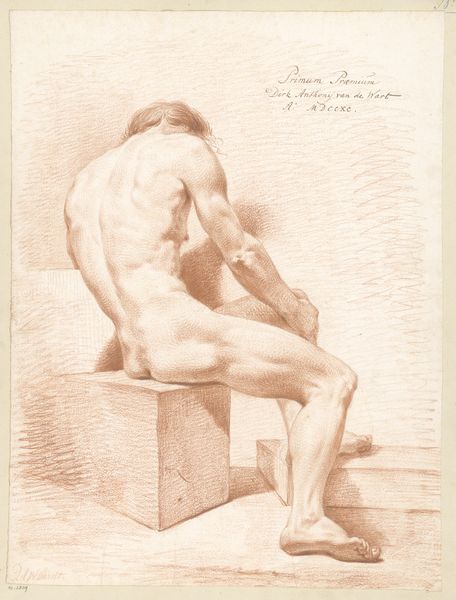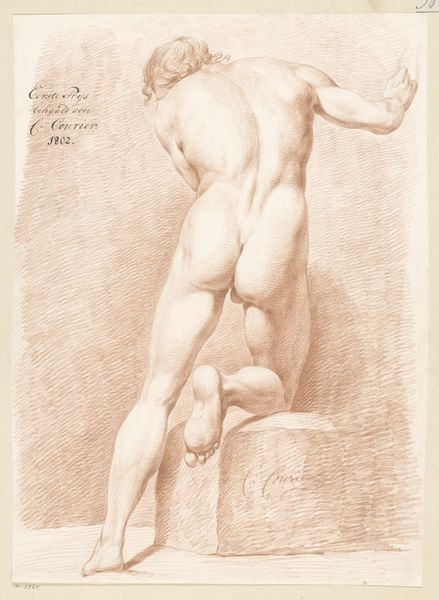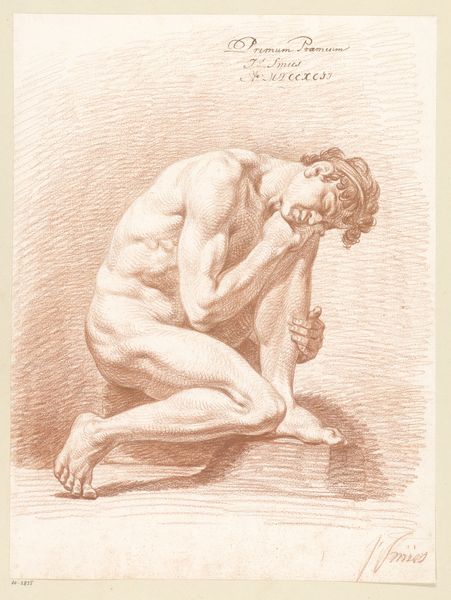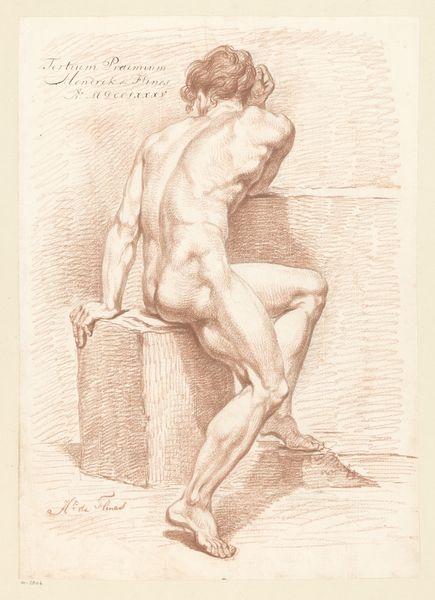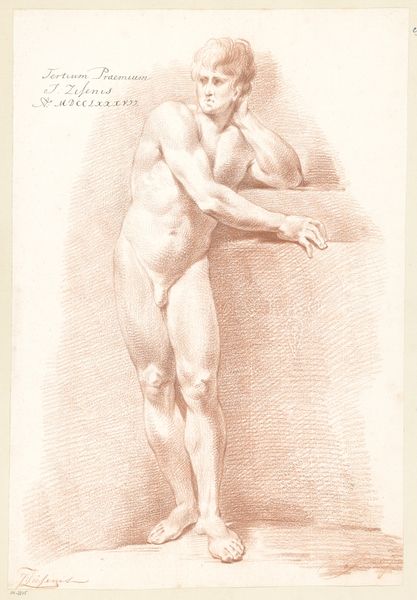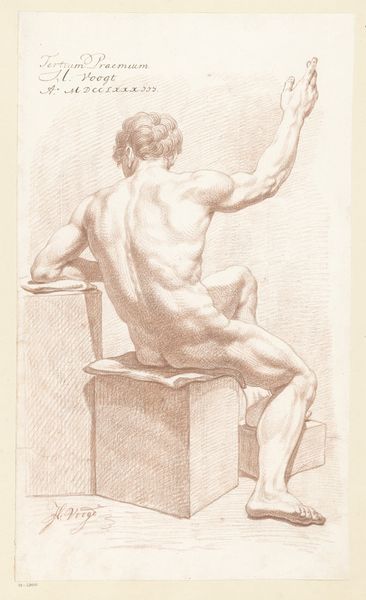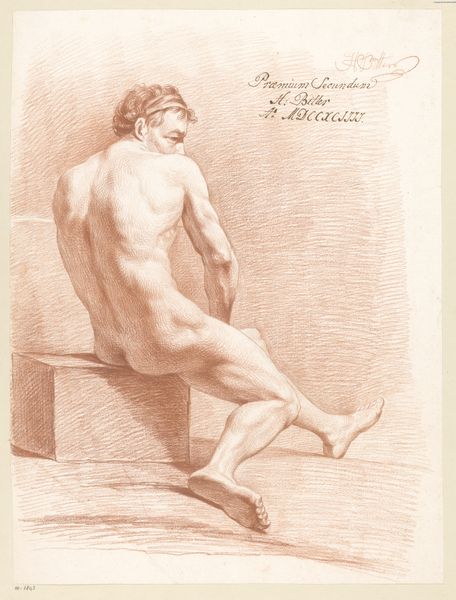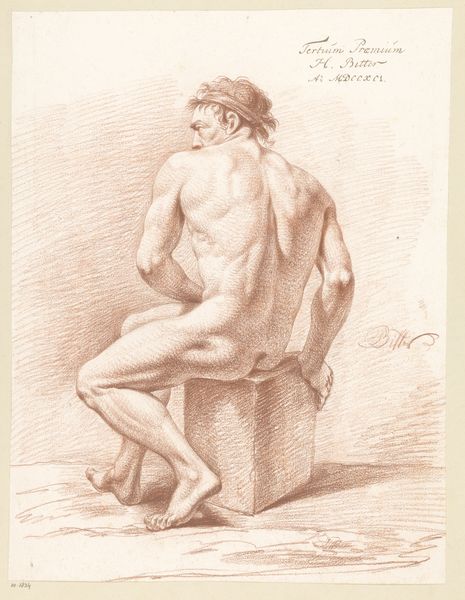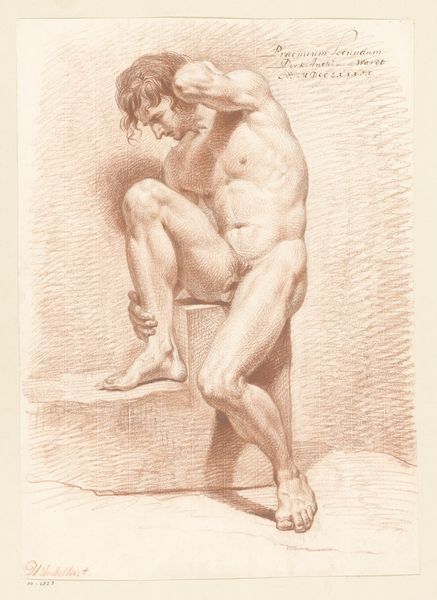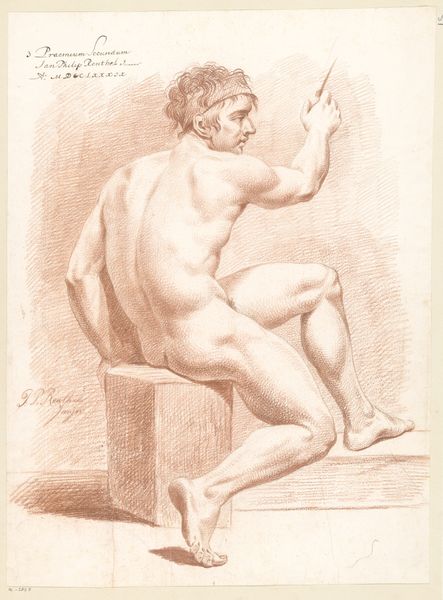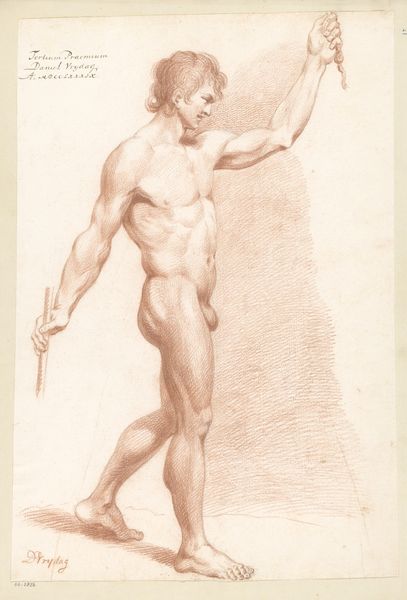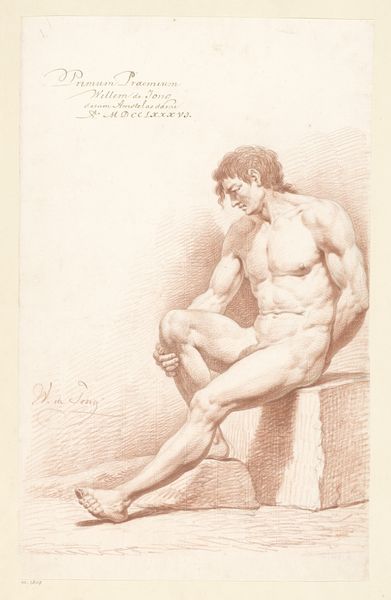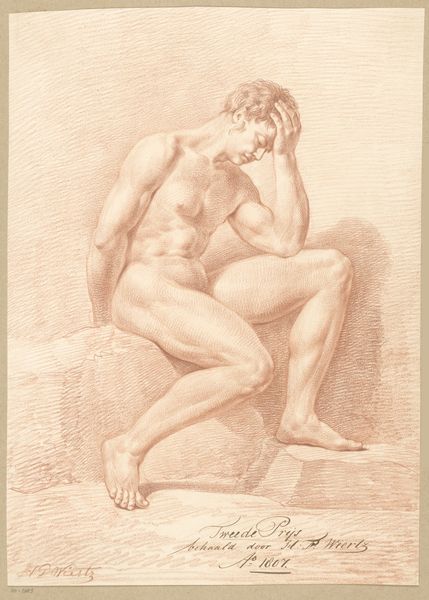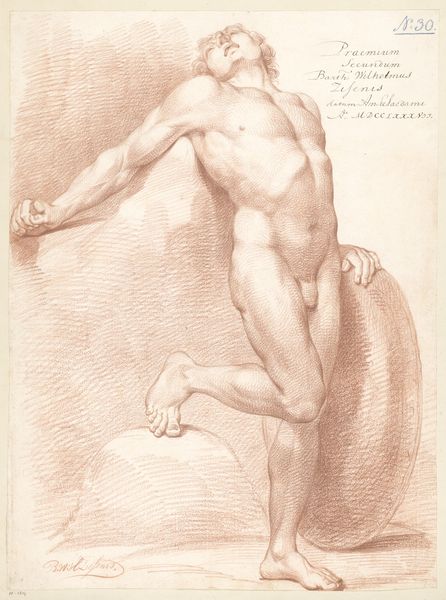
Zittend mannelijk naakt, van opzij gezien (2e prijs 1802) Possibly 1802
0:00
0:00
janwillempieneman
Rijksmuseum
drawing, dry-media, pencil, charcoal
#
portrait
#
drawing
#
neoclacissism
#
charcoal drawing
#
figuration
#
form
#
dry-media
#
pencil drawing
#
pencil
#
line
#
portrait drawing
#
charcoal
#
academic-art
#
nude
Dimensions: height 550 mm, width 446 mm
Copyright: Rijks Museum: Open Domain
Jan Willem Pieneman made this red chalk drawing of a seated male nude in 1802. It’s not just a pretty picture; it’s a window into the art world of the Netherlands during a time of great political and cultural change. The drawing won second prize, telling us something about the institutional structures of art education at the time. Pieneman was a student, and this was likely an academic exercise, conforming to the classical ideals that dominated art academies. But what does it mean to depict the male nude at this moment in Dutch history? The Batavian Republic, a satellite state of Revolutionary France, was in power. The drawing suggests a turn away from the frivolous art of the aristocracy to a more serious, civic-minded art. This aesthetic shift mirrored the changing social structures of the time, with new institutions and academies emerging. Understanding this work requires us to investigate the archives of art academies, study the writings of art critics, and consider how political change shapes artistic expression. Art is never just about the image; it reflects the society that creates it.
Comments
No comments
Be the first to comment and join the conversation on the ultimate creative platform.
